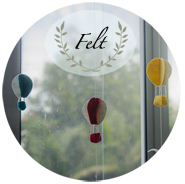
The Lesung, also known as the Asian version of the Mortar and Pestle. Is used for crushing and grinding spices to prepare rempah or samba belachan for Peranakan dishes. Unlike a food processor where all the spices can be thrown in and processed together, using a Lesung means that the ingredients need to be slowly lined up for pounding.
Starting from the hardest ingredient, candlenuts (buah keras), before ending off to the softest, i.e., soaked dried chillies.
‘Mama never had a food processor or a grinder or a blender. Everything was done by hand, the old fashioned way, with a lesung. I remember her squatting in the kitchen pounding away. Chilli, turmeric, ginger, garlic…’
This Singapore Mum Blogger occasionally uses the Lesung in her kitchen, and intends to pass her Lesung together with her grandmother’s kebayas to her children as heirlooms.
Who is she? Find out tomorrow from my 3rd post in my series of “Portraits of a Singapore Mom Blogger.”
































